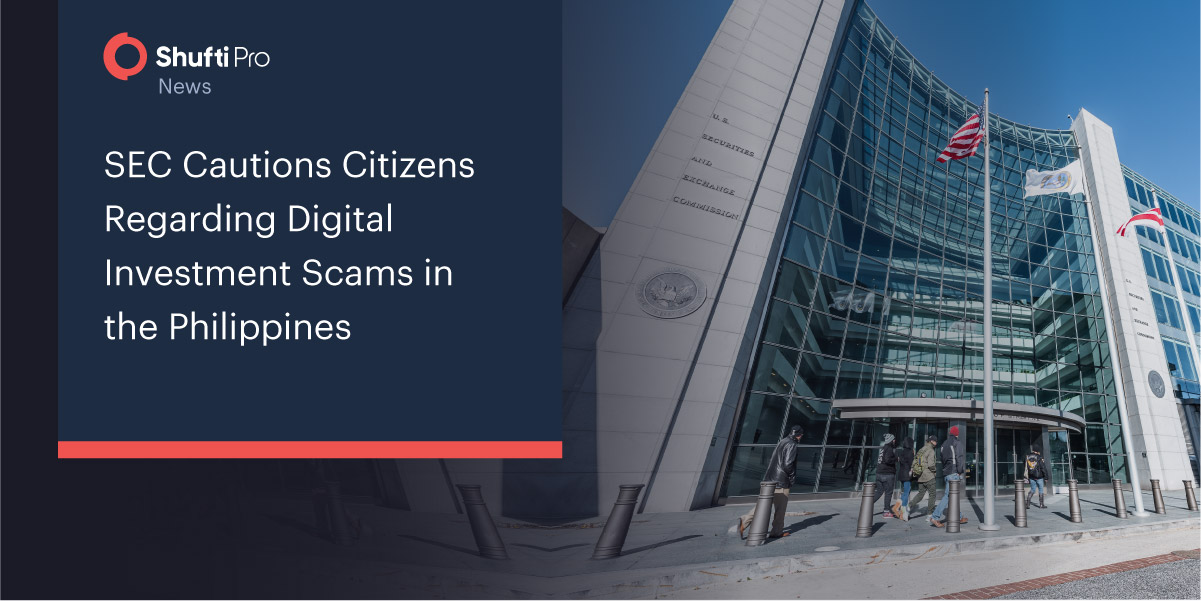SEC Cautions Citizens Regarding Digital Investment Scams in the Philippines

The Securities and Exchange Commission (SEC) has warned the public to pay caution while making digital assets and cryptocurrencies investments, highlighting the presence of investment fraud schemes circulating in the Philippines.
At a webinar organized by the Philippine Stock Exchange on Sunday, Vicente Graciano P. Felizmenio, Jr., director of the Markets and Securities Regulation Department at the Securities and Exchange Commission (SEC) said that the regulator “is not against DLT (distributed ledger technology), it’s not against blockchain, and definitely, we even encourage the use of it in the market, and we favor innovation.”
However, Vicente Graciano P. Felizmenio precautioned that cybercriminals are exploiting cryptocurrency and are coming up with fraudulent schemes to scam individuals, mentioning SEC guidelines against scams by illegal businesses that tricked investors to invest money in cryptocurrencies and virtual assets. The individuals that were flagged by the financial watchdog via its advisories defraud investors by claiming they invest in digital currencies. However, under the Bangko Sentral ng Pilipinas (BSP) Circular No. 1108 and guidelines for the Virtual Asset Service Providers, the entities that are indulged in cryptocurrencies operations are required to get a license from the BSP.
BSP Technology Risk and Innovation Supervision Department Director Melchor T. Plabasan said central banks are “veering away from calling these cryptocurrencies currency or money. There’s really a technical and legal definition for currency or money,” Mr. Plabasan said. “It should be backed by the central bank or by a monetary authority; it should be stable.”
Mr. Plabasan said according to current regulations on virtual asset service providers, “We really conduct thorough evaluation, on-site and off-site supervision; we do… technical review before these products and services are offered to the public and when you secure your license as a virtual asset service provider, then you are now required to comply with the BSP’s regulations,” which include rules on Anti-Money Laundering (AML), consumer protection, and cybersecurity.
Thus, to prevent suspicious activities in the country, BSP keeps a record of all licensed VAPs to ensure that investors can call for regulatory support in case of getting scammed.
“If you want to experience how it is to trade in retail for crypto, train in bonds.ph,” Union Bank of the Philippines Senior Executive Vice-President and Chief Technology and Operations Officer Henry Rhoel R. Aguda said.
He said bonds.ph is “a normal retail bond,” with bond investment for as little as P5,000. He said the platform uses blockchain.
“The bonds are not yet tokenized, (but) the mechanism and technology to buy and sell Philippine retail bonds is already in blockchain,” Mr. Aguda said. “That’s gone through regulatory approval, that’s in the partnership with the Bureau of the Treasury, and who knows in the future, that same experience of buying and selling retail bonds can be applied safely and securely on cryptocurrencies.”
Suggested read: IRS Highlights Potential Risk of Fraud in NFTs and Cryptocurrencies

 Explore Now
Explore Now













